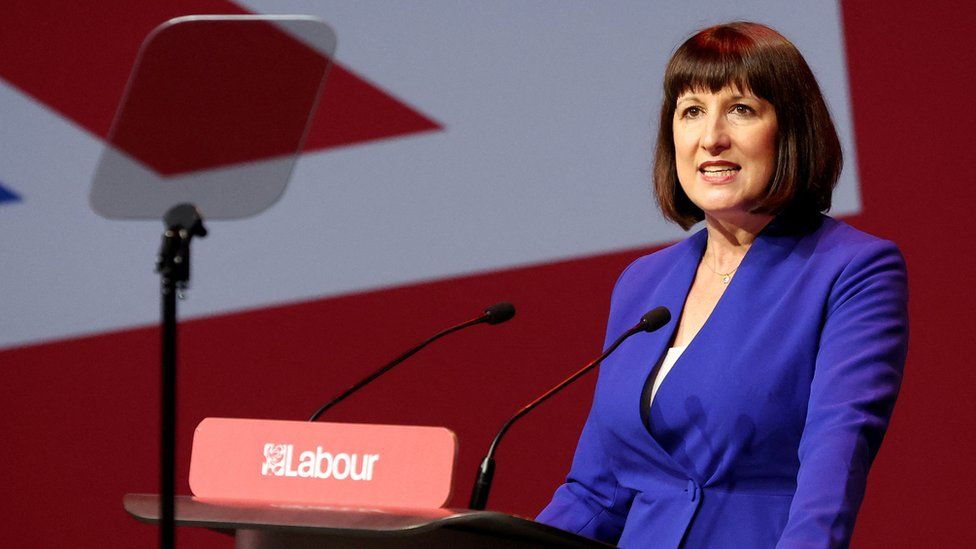ARTICLE AD BOX
 Image source, Reuters
Image source, Reuters
By Chas Geiger
BBC Politics, in Liverpool
A Labour government would create an anti-corruption commissioner to recoup billions of pounds lost to fraud and waste during the Covid pandemic, the party has announced.
Shadow chancellor Rachel Reeves will set out the plan in her speech to Labour's conference on Monday.
She is expected to put the cost to the taxpayer of Covid fraud at £7.2bn.
Ms Reeves will also pledge to speed up the planning process for critical infrastructure, if Labour wins power.
Meanwhile, the Labour leadership is set for a showdown with Unite - historically the party's biggest financial backer - over the union's call to nationalise critical infrastructure, starting with privatised electricity and gas networks.
Delegates will vote on whether the party should adopt this policy - which is opposed by Ms Reeves and Labour's leader Sir Keir Starmer - on Monday evening.
Labour's proposal to recover money lost as a result of fraud and waste during the pandemic would bring together HMRC, the Serious Fraud Office and the National Crime Agency.
Ms Reeves will tell the conference in Liverpool that just 2% of fraudulent Covid grants - "with every one of those cheques signed by Rishi Sunak as chancellor" - have been recouped.
She will promise to appoint a Covid corruption commissioner with full powers to take cases to court and "claw back every penny of taxpayers money that they can".
"That money belongs in our NHS, it belongs in our schools, it belongs in our police - we want that money back," she will say.
In a post on X, formerly Twitter, she said: "As Chancellor, I will always treat taxpayers' money with respect."
According to the Guardian, Ms Reeves will also promise a review of sentencing for offences of fraud committed against public services.
'Fast-tracked'
On infrastructure, the shadow chancellor will use her speech to pledge to overhaul an "antiquated planning system", in order to "get Britain building again".
Decision times for major projects have increased by two-thirds since 2012, to four years, Ms Reeves will say, and economic growth and net zero considerations need to be factored in.
Ms Reeves will argue that her "once-in-a-generation" changes are key to reviving a sluggish economy.
The proposals include updating all national policy statements and detailing what types of projects the country needs, within the first six months of Labour entering office. Some have not been revised for over a decade.
Planning applications would be fast-tracked for battery factories, laboratories and 5G infrastructure - and 300 new planning officers would be appointed.
Labour said it would also tackle time-consuming legal challenges by setting clearer national guidance for developers on consulting local communities.
It would provide a menu of potential incentives such as cheaper energy bills to encourage local communities to welcome clean energy projects.
Shevaun Haviland, Director General of the British Chambers of Commerce, welcomed the policy, saying long-term investment in infrastructure was a "key ingredient to get our economy back to growth".
"We are pleased to see a future Labour government would support the building of large-scale factories and improve our digital infrastructure, such as 5G connectivity," she said.
The Federation of Small Businesses (FSB) also welcomed Ms Reeves' proposals as a "clear, grown-up policy".
FSB National Chair Martin McTague welcomed more local planning officers, to "help small housebuilders and other businesses deliver projects more quickly".

 1 year ago
23
1 year ago
23








 English (US)
English (US)